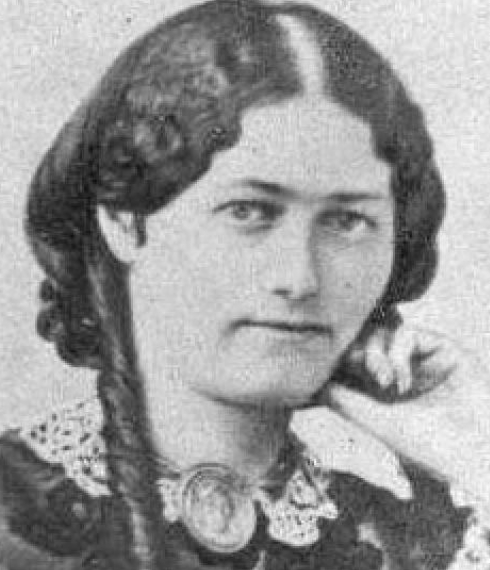On this date in 1830, Clémence-Auguste Royer (née Augustine-Clémence Audouard) was born in Nantes, France. Her parents were Catholic royalists and didn’t marry until seven years after her birth. Her early education was in a convent school. Royer became a republican following the Revolution of 1848 and started to question other commonly held views. She obtained a teaching certificate and taught at girls schools in Wales, where she mastered English, and in France.
She read widely on science in these school libraries. In 1855, as a result of her inquiries, she rejected Catholicism thoroughly and devoted herself to science. She began to offer lectures on science and logic for women in Lausanne, Switzerland, in 1858.
Royer translated Charles Darwin’s Origin of Species into French in 1863. She controversially added a 60-page preface which used Darwin’s mechanism for evolution as part of an anti-religious argument, which Darwin did not make. By this time the book was in its third English edition and contained several strong references to a creator. Royer had been an evolutionist before reading Darwin, having been strongly influenced by the writings of Jean Baptiste LaMarck.
French scientists, especially atheists and anthropologists, were strongly influenced by evolution and natural selection as framed by Royer, who also discussed the implications of evolutionary theory for human beings and society in her introduction. It would be almost 10 years before Darwin himself grappled with these issues in The Descent of Man. Royer continued as Darwin’s official French translator until the third French edition of Origin was published in 1870.
Royer, despite not being a research scientist, remained a popular interpreter of science as well as a philosopher of science. As a woman, she was denied access to many learned societies, as well as university teaching positions. It has been argued by Jennifer Michael Hecht and others that Royer opened doors to women within the freethinking movement. In 1866 she had a son, René, by her lover and life partner, Pascal Duprat, a married man, which sharpened her concern about the major legal obstacles then present to unwed mothers and their children.
She published many books and articles and considered the pinnacle to be Natura rerum, her theory of nature. In 1900 she was named a Chevalier of the Legion of Honor for her contributions as “a woman of letters and a scientific writer.” Royer died in 1902 at age 71. Her son died of liver failure six months later in Indochina. (D. 1902)


